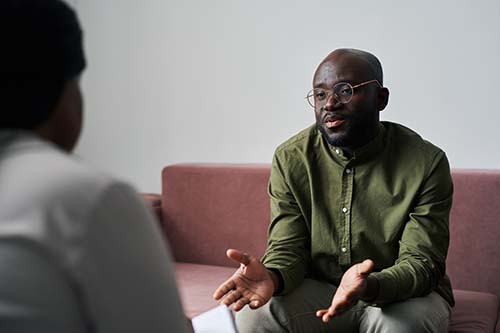
Opioid abuse, such as prescription pain pills and heroin, is a growing problem in the United States. Misuse of opioids has become so prevalent that it is commonly referred to as "the opioid crisis." Many different drugs fall under the classification of an opioid. Some have legitimate medical purposes, usually for pain management, while others exist only as illicit recreational drugs. In either case, opioids are highly addictive, and even users who strictly follow their doctor's orders risk dependency. Opioid addiction affects not only people's health but also the economic welfare of societies. It's important to keep in mind that opioid addiction rehab is necessary for many people to recover.
If you or a loved one are struggling with opioid addiction, you need a reputable drug and alcohol rehab center. San Antonio Recovery Center has an opioid addiction rehab program and compassionate, experienced staff who can help you or a loved one start the journey towards an addiction-free life. Call today at 866.957.7885.
Opioid abuse is on the rise, thanks to how easy it is for people to get these drugs. In fact, studies show that most opioid misuse starts with legitimate prescriptions from doctors. In 1991, physicians around the world handed out nearly 76 million opioid prescriptions. This number jumped to over 207 million in 2013.
Americans are the biggest contributors to this increase. The country represents approximately 5% of the world's population but consumes over 80% of the world's opioids while accounting for nearly 100% of the world's total hydrocodone usage. People know this drug better as its brand name Vicodin, but other popular brands include Norco and Lortab. Also, the nation accounts for 81% of all oxycodone prescriptions such as OxyContin and Percocet. It is easy to understand why the rampant use of opioids in the United States is called a "crisis."
Opioid addiction typically starts when doctors prescribe these drugs. Vicodin and OxyContin help treat moderate to severe pain. Doctors often prescribe opioid medications to people who undergo surgery or are in serious accidents.
Opioids attach themselves to opioid receptors in the brain. These receptors are also present in the spinal cord, nerve cells, and gastrointestinal tract. After attaching, the drugs cause the receptors to block pain and send signals of well-being to the brain that manifest as euphoria.
Beyond addiction, opioids cause a number of other problems. Some of the common side effects of opioid use include:
Doctors typically take precautions to keep people from developing an opioid addiction. For example, they may limit the number of refills that they give patients. However, some people develop an addiction anyway, and soon they are running out of pills before it is time for a refill. This can lead to drug-seeking behavior, such as borrowing or stealing pills from friends and relatives to tide them over until they can refill.
When doctors refuse to refill prescriptions, those struggling with an opioid addiction may engage in "doctor shopping." They visit new doctors until they find one who will refill their prescription. This practice continues until they exhaust all of the doctors in their area. From there, they usually move on to illegal street drugs such as heroin, which is also an opiate.
Addiction is hard to overcome. One reason for this difficulty is the unpleasant withdrawal symptoms that people experience when they stop taking the drug. While withdrawal symptoms make it hard to quit, addiction is also a disease. Rather than something that people can control, addiction controls them.
Some common opioid withdrawal symptoms include
The severity of these symptoms varies depending on numerous factors. For example, the longer that people take opioids, the more intense their withdrawal symptoms will be.
In addition, some opioids spawn worse withdrawal symptoms. For example, heroin often has more severe withdrawal symptoms than prescription pain pills. This is because heroin is an illegal street drug with no quality control. Heroin makers often lace it with other drugs, including other forms of opioids, resulting in an overdose since the potency is greater than expected.
Opioid addiction treatment helps people overcome their addiction to opioids. It typically involves detoxification, counseling, and medication-assisted treatment (MAT). Detox helps individuals manage withdrawal symptoms and cravings, while counseling provides an opportunity for patients to explore the psychological aspects of opioid use. MAT combines medications with psychosocial support to reduce the risk of relapse. Through rehab therapy and counseling, those in recovery can gain skills to prevent relapse and learn how to live a healthier life. The goal of opioid addiction rehab is to help people regain control of their lives and become drug-free.
The duration of an opioid addiction rehab program depends on the individual's needs and goals. During treatment, individuals should expect to develop healthy coping skills, learn about relapse prevention techniques, and gain support for their recovery efforts. With proper treatment and support, people can overcome their opioid addiction and start living a productive, healthy life.
San Antonio Recovery Center is an accredited treatment center that provides comprehensive care for opioid addiction. We offer evidence-based therapies and medication-assisted treatment, as well as a supportive environment to help each person on their journey toward recovery. Our experienced team of professionals will work with you to develop an individualized plan of care tailored to meet your specific needs. Contact us today at 866.957.7885 to learn more about our opioid addiction rehab services.
contact us now!
